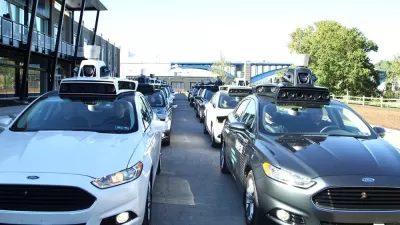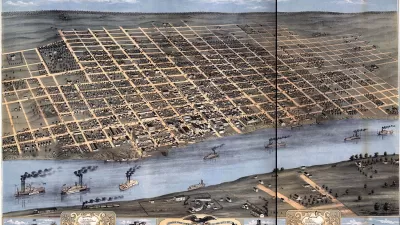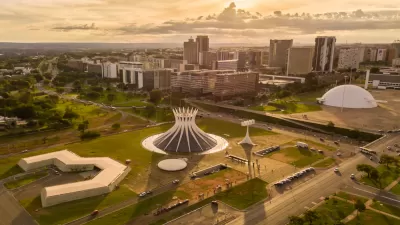Common Edge surveyed mayors and urban designers for ideas about what the next decade holds in store for cities. There were plenty of challenges in facing the world before the pandemic.

Before the impacts of the coronavirus pandemic had shut down cities in the United States, Common Edge surveyed mayors and urban designers for predictions on the next decade of life in cities. The context into which COVID-19 emerged sowed the seeds for the coming economic and public health shock of the pandemic.
All 44 mayors and 45 design leaders surveyed by Common Edge participated in the Mayors’ Institute on City Design last year. "Answers ranged from the practical to the alarmist, from the aspirational to the fantastical," according to the article, which groups responses into a few interrelated themes, such as those listed below:
- "The Existential Threats of the Last Decade Will Shift From the Theoretical to the Urgent" – In this case, the theme focused on climate change and affordability, but also focused on questions of privacy in an era of big data and the impact of autonomous vehicles.
- "Residents Will Demand That We Do Things Differently" –The rate of change in cities will require responsive and flexible government, according to the answers provided here.
- "What’s Old Will Become New Again" – Urban residents will continue to seek authentic experiences, with an orientation to the public realm.
- "Cities Will Lead With Landscape as the Era of Single-Objective Infrastructure Ends" – Resilience will require a new, more efficient approach to infrastructure, according to this theme.
- "Cities Will Become the Primary Stewards of Social Infrastructure" – This theme predicts that climate change would require cities to lead in maintaining the "connections and glue that bind communities together," but COVID-19 might have moved up the timeline for this prediction.
FULL STORY: How Mayors and Design Leaders View the Coming Decade

Alabama: Trump Terminates Settlements for Black Communities Harmed By Raw Sewage
Trump deemed the landmark civil rights agreement “illegal DEI and environmental justice policy.”

Study: Maui’s Plan to Convert Vacation Rentals to Long-Term Housing Could Cause Nearly $1 Billion Economic Loss
The plan would reduce visitor accommodation by 25% resulting in 1,900 jobs lost.

Planetizen Federal Action Tracker
A weekly monitor of how Trump’s orders and actions are impacting planners and planning in America.

Wind Energy on the Rise Despite Federal Policy Reversal
The Trump administration is revoking federal support for renewable energy, but demand for new projects continues unabated.

Passengers Flock to Caltrain After Electrification
The new electric trains are running faster and more reliably, leading to strong ridership growth on the Bay Area rail system.

Texas Churches Rally Behind ‘Yes in God’s Back Yard’ Legislation
Religious leaders want the state to reduce zoning regulations to streamline leasing church-owned land to housing developers.
Urban Design for Planners 1: Software Tools
This six-course series explores essential urban design concepts using open source software and equips planners with the tools they need to participate fully in the urban design process.
Planning for Universal Design
Learn the tools for implementing Universal Design in planning regulations.
Caltrans
Smith Gee Studio
Institute for Housing and Urban Development Studies (IHS)
City of Grandview
Harvard GSD Executive Education
Toledo-Lucas County Plan Commissions
Salt Lake City
NYU Wagner Graduate School of Public Service





























